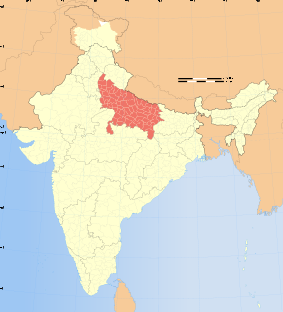I have such a strong sense of fatalism that I've never been able to understand the part of prayer that involves asking God for things. If nothing is good or bad but thinking makes it so (Shakespeare reference there) and things happen as they are supposed to happen based on cosmic justice and karma, then where is the place for asking God to change "His" plan?
This question has plagued me for a long time. I don't feel comfortable asking God/the Universe for things.
This came even more accutely to my attention recently. I read a blog called The Life and Times of an Indian Homemaker She blogs mostly about injustice to women in Indian society, politics, and change, but a few weeks ago her nineteen year old daughter came down with Dengue fever. She asked for our prayers.
I did not know what to say. I promised my thoughts and my hopes. The child died on August 11th.
So here I am wondering about prayer again. It is hard for me to believe that if you go to a particular temple and make a particular sacrifice, then what you want to happen will happen. On the other hand, I do believe in the power of our minds to create reality and that focusing our attention on something powerfully draws it to us.
Eat Pray Love, the book, gave me some new ways of looking at and thinking about prayer.
Near the beginning, when she's going through a divorce, she takes a long driving trip with a friend from Lebanon. She tells her friend that she wishes she could write a petition to God to get her divorce over and done with. The friend asks why doesn't she. Ms. Gilbert expresses many of the same reasons I have not to pray: "I explained to Iva my personal opinions about prayer. Namely, that I don't feel comfortable petitioning for specific things from God, because that feels to me like a kind of weakness of faith. I don't like asking, 'Will you change this or that thing in my life that's difficult for me?' Because-- who knows?--God might want me to be facing that particular challenge for some reason." (Page 32)
Iva responds, "Where'd you get that stupid idea?" She goes on to say "You are part of this universe...you have every entitlement to participate in the actions of the universe, and to let your feelings be known...it will at least be taken into consideration." (page 32)
So they write a petition to God and shortly after she got a phone call that her divorce had finally gone through.
This notion that as part of the universe, and part of the divine, we have a right to ask for things to go a certain way, is a very new idea to me.
Later in the book she talks about prayer again. I want to just quote the whole chapter to you! It's on page 176 when she talks about her prayers becoming more deliberate. At first she felt odd praying, thinking that God already knows what she needs. She describes her prayers as sounding like talking a hairdresser... "Oh, I dunno what I need...but you must have some ideas...so just do something about it, would you?"
But then she realizes that the half-heartedness isn't going to get her anywhere. She says
"Of course God already knows what I need. The question is--do I know?...You're going to get more out of the experience if you can take some action on your end...Prayer is a relationship; half the job is mine. If I want transformation, but can't even be bothered to articulate what, exactly, I'm aiming for, how will it ever occur? Half the benefit of prayer is in the asking itself, in the offering of a clearly posed and well-considered intention...In making an effort to stay alert, I am assuming custodial responsibility for the maintenance of my own soul." (pg. 176 and 177)
I love that part about "prayer is a relationship; half the job is mine." That makes so much sense!
It's like when you're sitting in a classroom and thinking, "Please, please, please let me pass this test." First of all, I don't know if God cares if you pass the test, but assuming we're talking about it's important to us, so it's important to the universe...well, in that case hopefully you've also studied!
She goes on to talk about destiny also being a relationship, "a play between divine grace and willful self-effort."
I guess another issue is that I want to be beyond the realm of desires, and therefore praying for things I want seems wrong. But I need to acknowledge my desires and see them before automatically squashing them. I am not spiritually in a place where I can be without desire. Especially desire for good things, like the life of a beloved child. How do I reconcile that I think everything happens for a reason and that death is only natural and not a tragedy with praying for things to turn out a certain way?
Well, it reminds me of another Advaitist story. I only remember the bare bones of it, but the idea was that an enlightened man heard about a woman's young son who died and he wept for the child. His disciples asked him why he did this, when he taught that death is an illusion. He said that we are human beings and we have human emotions and it is important to go through those emotions appropriately. We do and should have emotions and emotional responses to things.
This is still a big question for me, but I'm going to try prayer and experiment with it a little. I'm very inspired by these two new ways to think about prayer.





.jpg)



